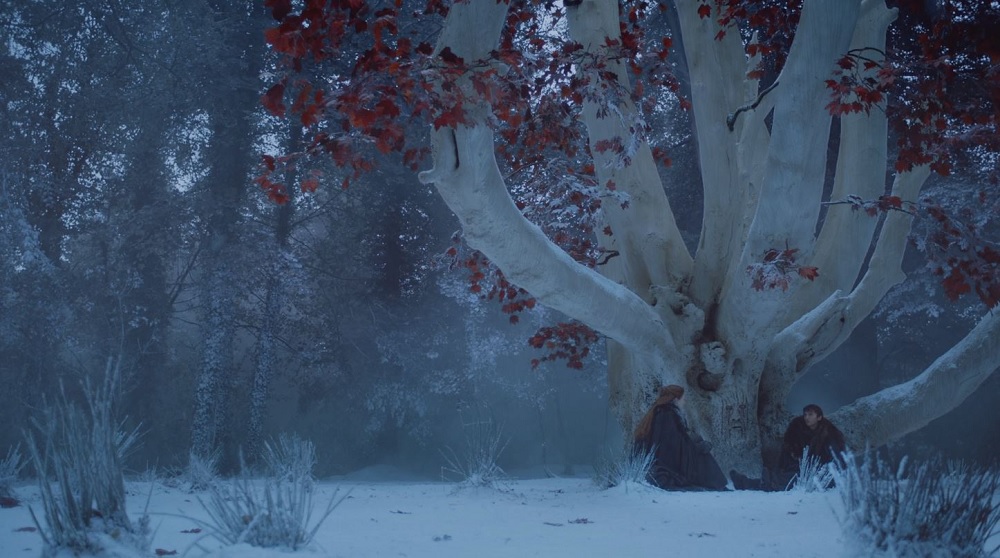
As there are carols in the air and holiday cheer all around us this time of year, you may be wondering if there is anything similar for our fantasy friends in Westeros? Are there decorated trees, candle lighting, a Santa Claus throwing presents down chimneys, or any sort of midwinter holidays going on? We’ll take a look at what George R.R. Martin has his characters celebrating and how they compare to our real-life traditions.
One thing to keep in mind with Westerosi holidays is that the highly irregular seasons have a huge impact on when and what the people of Westeros celebrate. In our world, there are festivals and feasts that mark the changing of each season to another, and harvest and midwinter festivals. Christmas was originally a raucous pagan midwinter celebration of the brutal cold being half over, one that converted Christians brought with them. But when there are years or decades between winter and summer, there’s very little to regularly celebrate or convenient seasonal changes to look for. In the Long Summer, you’d be harvesting food all year around. And the Long Winters or Long Nights, you’d never know when it was half over as the years of cold drag on and on; so how would you know when to celebrate? Especially with icy butchers lurking in the dark.
In the South, there are more holidays that we would recognize. Each of the aspects of the Faith of the Seven receives their own feast. The one we see celebrated is Maiden’s Day.
Fast and purify . . . oh, for Maiden’s Day. It had been years since Cersei had been required to observe that particular holy day. Thrice wed, yet she still would have us believe she is a maid. Demure in white, the little queen would lead her hens to Baelor’s Sept to light tall white candles at the Maiden’s feet and hang parchment garlands about her holy neck. A few of her hens, at least. On Maiden’s Day widows, mothers, and whores alike were barred from the septs, along with men, lest they profane the sacred songs of innocence. Only virgin maids could . . .
A Feast for Crows, Cersei IX
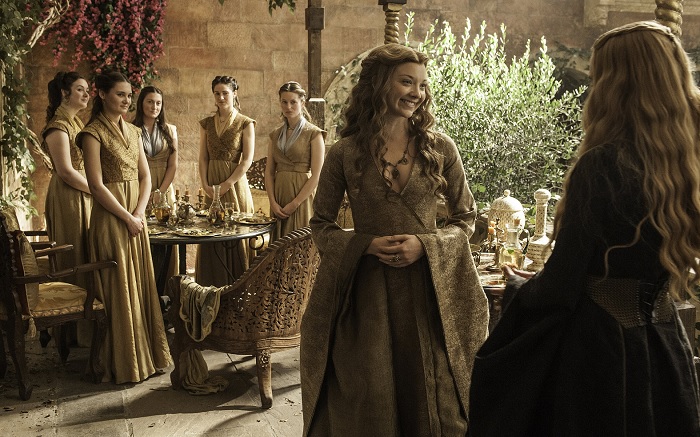
In this particular passage Cersei is formulating the strategy that leads to the arrest of Margaery Tyrell. Cersei orders her man Osney Kettleback to seduce the young queen to have her tried for being unfaithful to her husband and the Faith of the Seven. Failing that, she continues manufacturing evidence that Margaery is not a virgin, and the Queen of the Seven Kingdoms is arrested. Not exactly a joyous holiday.
The Seven Kingdoms also celebrate New Year’s Eve as we know it: a night of drinking, debauchery, and fun had by all, as they turn the calendar to another year. Despite their lack of seasonal changes they still manage to count the number of days in a year, likely by tracking the positions of the star in the sky. The wedding of King Joffrey to Margaery Tyrell took place on the first day of the new year and century, 300 A.C., likely an attempt by the Crown to have a citywide celebration to mask Joffrey’s historic unpopularity and to turn a new leaf.
“I rather liked these accommodations. Have you set a date for this great wedding?”
“Joffrey and Margaery shall marry on the first day of the new year, which as it happens is also the first day of the new century. The ceremony will herald the dawn of a new era.”
A new Lannister era, thought Tyrion. “Oh, bother, I fear I’ve made other plans for that day.” –
A Storm of Swords, Tyrion I
Unfortunately, that holiday is again spoiled by court scheming with the death of Joffrey by poisoning. They just have the worst luck at celebrating anything in Westeros with George R.R. Martin at the wheel.
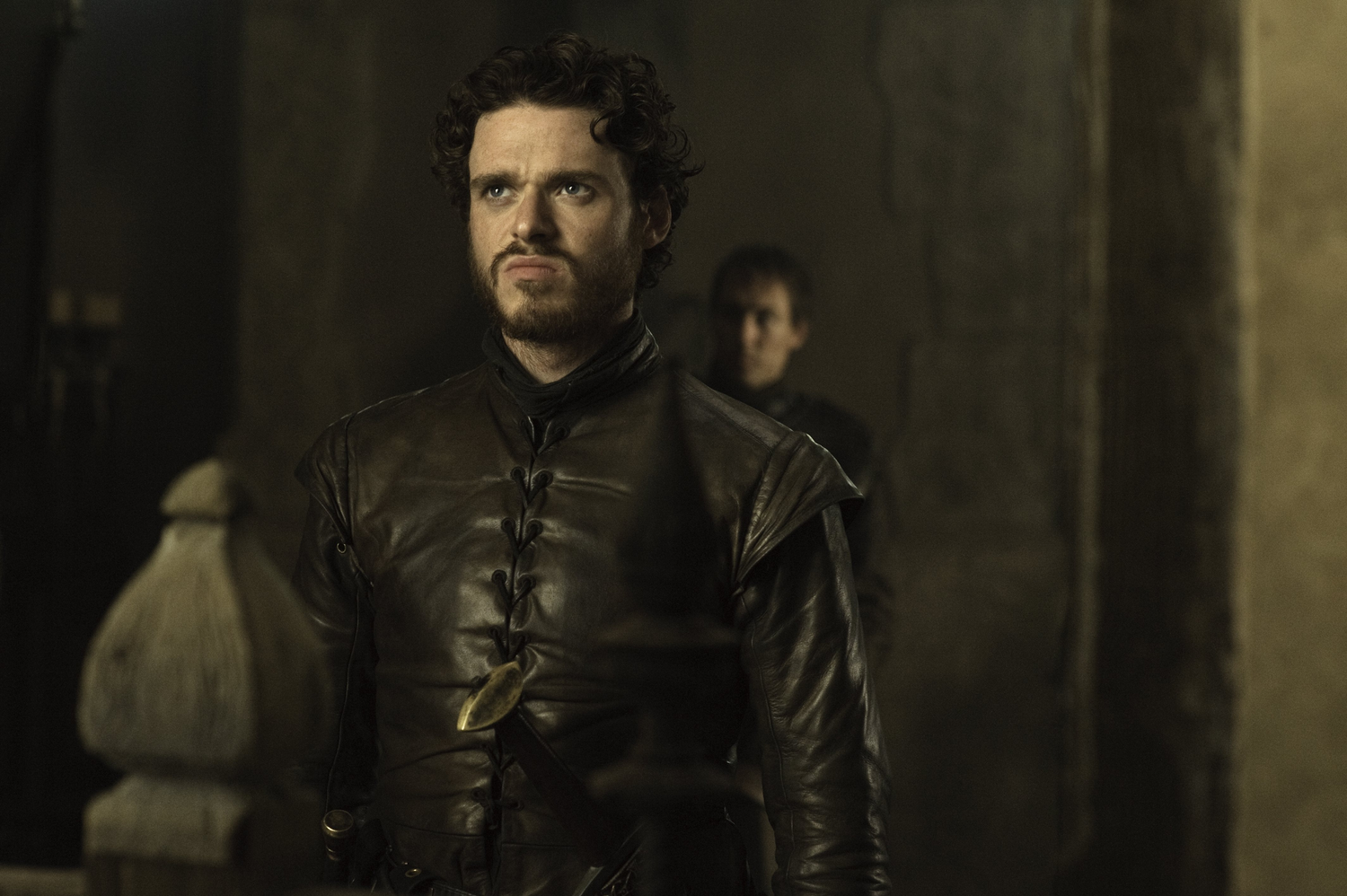
It’s notable that Robb Stark plans his attack on the Ironborn holding Moat Cailin on New Year’s Day as well. He had hoped to take advantage of the defenders making a bit too merry the night before.
Three hosts will leave the Twins, but only two will reach Moat Cailin. Mine own battle will melt away into the Neck, to reemerge on the Fever. If we move swiftly once my uncle’s wed, we can all be in position by year’s end. We will fall upon the Moat from three sides on the first day of the new century, as the ironmen are waking with hammers beating at their heads from the mead they’ll quaff the night before.”
A Storm of Swords, Catelyn V
And again, another fine holiday celebration gone awry as Robb is slain at the Red Wedding with most of his men and leadership before they can put this plan into effect.
Aside from the other six holidays for the Faith of the Seven and New Year’s Day, the novels and show are conspicuously lacking in feasts and festivals. The other main feast we see is the Winterfell harvest festival which signals the coming fall. Of those we’ve seen so far, the Northern party seems by far the best. Almost all the nobility left in the North following Robb calling his banners turn up for a rip-roaring good time in Winterfell.
Lord Wyman Manderly, Lady Hornwood, the Cerwyns, Mors “Crowsfood” and Hother “Whoresbane” Umber, the Tallharts, Meera and Jojen Reed, and the Cassels all descend on the castle bringing gifts and food and drink to share. In normal times, almost all the lords of the North may have arrived at once. As brought up earlier, the inconsistency of the seasons means that this may be the only autumn harvest festival the North sees for years. Winters sometimes only last a couple of years, but have been documented to last decades. Many will die of starvation and freeze in the unmerciful cold of Northern winter, so the harvest festival of the North is something of a last hurrah, especially for the older folk.
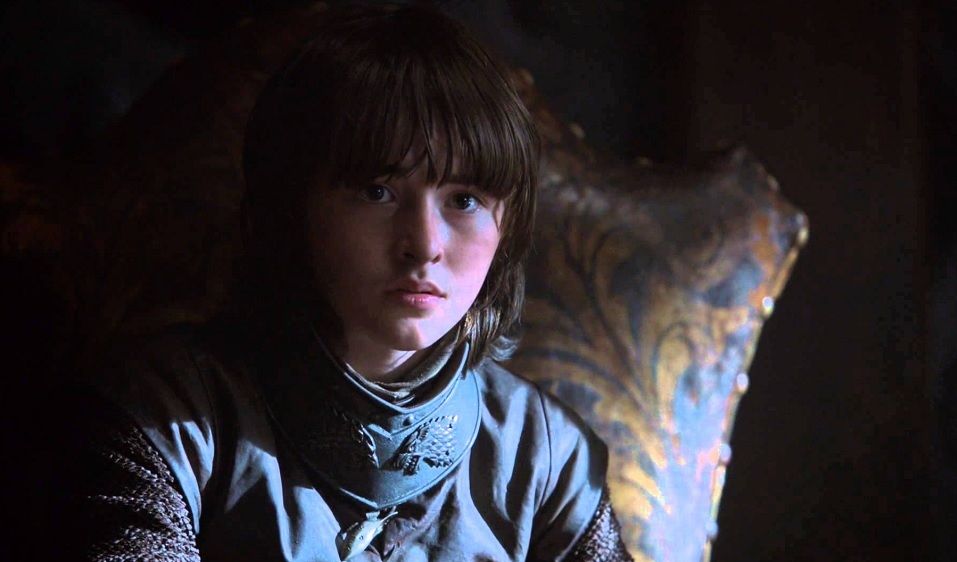
With Robb gone south, it was left to the crippled Bran Stark as acting lord to preside over the feast.
The low stone steps balked Dancer only for a moment. When Bran urged her on, she took them easily. Beyond the wide oak-and-iron doors, eight long rows of trestle tables filled Winterfell’s Great Hall, four on each side of the center aisle. Men crowded shoulder to shoulder on the benches. “Stark!” they called as Bran trotted past, rising to their feet.
“Winterfell! Winterfell!”
He was old enough to know that it was not truly him they shouted for—it was the harvest they cheered, it was Robb and his victories, it was his lord father and his grandfather and all the Starks going back eight thousand years. Still, it made him swell with pride.
A Clash of Kings, Bran III
Then came the dancing and singing and hard partying of the Northerners. And, of course, George’s infamous food porn.
Such food Bran had never seen; course after course after course, so much that he could not manage more than a bite or two of each dish. There were great joints of aurochs roasted with leeks, venison pies chunky with carrots, bacon, and mushrooms, mutton chops sauced in honey and cloves, savory duck, peppered boar, goose, skewers of pigeon and capon, beef-and-barley stew, cold fruit soup. Lord Wyman had brought twenty casks of fish from White Harbor packed in salt and seaweed; whitefish and winkles, crabs and mussels, clams, herring, cod, salmon, lobster and lampreys. There was black bread and honeycakes and oaten biscuits; there were turnips and pease and beets, beans and squash and huge red onions; there were baked apples and berry tarts and pears poached in strongwine. Wheels of white cheese were set at every table, above and below the salt, and flagons of hot spice wine and chilled autumn ale were passed up and down the tables.
Lord Wyman’s musicians played bravely and well, but harp and fiddle and horn were soon drowned beneath a tide of talk and laughter, the clash of cup and plate, and the snarling of hounds fighting for table scraps. The singer sang good songs, “Iron Lances” and “The Burning of the Ships” and “The Bear and the Maiden Fair,” but only Hodor seemed to be listening. He stood beside the piper, hopping from one foot to the other.
The noise swelled to a steady rumbling roar, a great heady stew of sound.
A Clash Of Kings Bran III
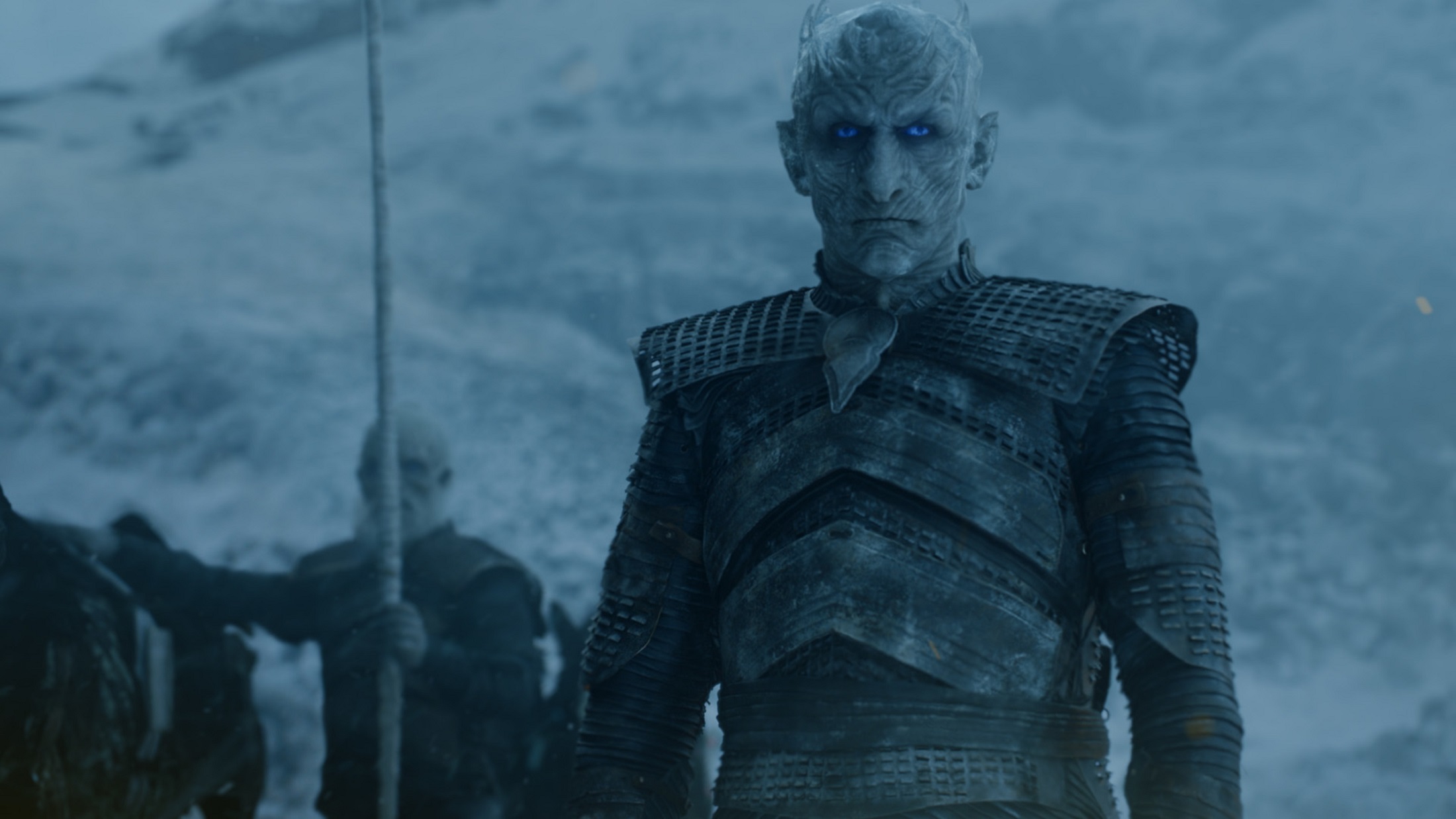
Near the end of the harvest feast, we are told of a song that we do not learn the words to, but seems critical to the Northerners and the celebration.
Much later, after all the sweets had been served and washed down with gallons of summerwine, the food was cleared and the tables shoved back against the walls to make room for the dancing. The music grew wilder, the drummers joined in, and Hother Umber brought forth a huge curved warhorn banded in silver. When the singer reached the part in “The Night That Ended” where the Night’s Watch rode forth to meet the Others in the Battle for the Dawn, he blew a blast that set all the dogs to barking.
Two Glover men began a spinning skirl on bladder and woodharp. Mors Umber was the first on his feet. He seized a passing serving girl by the arm, knocking the flagon of wine out of her hands to shatter on the floor. Amidst the rushes and bones and bits of bread that littered the stone, he whirled her and spun her and tossed her in the air. The girl squealed with laughter and turned red as her skirts swirled and lifted.
A Clash of Kings, Bran III
It’s almost certain the song “The Night That Ended” contains details of the defeat of the Others (White Walkers). Every autumn the North celebrates that they’ve beat back the icy demons of winter and brought summer back. While there is for sure a particular day the Long Night ended and the North triumphed, it may make no sense to celebrate it, as during any particular year the day could fall in the dead of winter or the height of summer. There’s also likely a corresponding spring festival celebrating the same, a “we survived winter” party and mourning those who did not.
As for what we would think of as holiday and Christmas decorations, Westeros is lacking. The closest the Westerosi come to what we would recognize as decorations is the ancient Northern practice of “decorating” weirwoods. Old God worship is tied to human and blood sacrifice, and this gruesome image from the books:
It’s said they hung their entrails in the branches of the heart tree, as an offering to the gods. The old gods, not these new ones from the south. Your Seven don’t know winter, and winter don’t know them.”
A Dance with Dragons, Davos IV
The original language of the First Men—known as the Old Tongue—has come to be spoken only by the wildlings beyond the Wall, and many other aspects of their culture have faded away (such as the grislier aspects of their worship, when criminals and traitors were killed and their bodies and entrails hung from the branches of weirwoods.)
The World of Ice and Fire
A gross, bloody version of garland on a Christmas tree. Like most things in Westeros. the holidays and festivals are horrific and often get people killed unexpectedly.
As for mythological figures like Santa Claus, Saint Nicholas, Sinterklass, or Odin, Westeros again is lacking. There’s only the Others and they are closer to a Krampus-like figure: a half-human demon who punishes the wicked children while rattling chains. Except there’s no carrot to the Krampus stick. There’s no jolly figure bringing cheer and presents; the only gifts are slaughter, undeath, and the icy blue eyes of doom.
There’s also a vaguely Krampus-like figure wandering the Nightfort according to the terrifying tales of Old Nan.
This was the castle where King Sherrit had called down his curse on the Andals of old, where the ’prentice boys had faced the thing that came in the night, where blind Symeon Star-Eyes had seen the hellhounds fighting. Mad Axe had once walked these yards and climbed these towers, butchering his brothers in the dark.
Or maybe it wasn’t Mad Axe at all, maybe it was the thing that came in the night. The ’prentice boys all saw it, Old Nan said, but afterward when they told their Lord Commander every description had been different. And three died within the year, and the fourth went mad, and a hundred years later when the thing had come again, the ’prentice boys were seen shambling along behind it, all in chains.
The footfalls sounded heavy to Bran, slow, ponderous, scraping against the stone. It must be huge. Mad Axe had been a big man in Old Nan’s story, and the thing that came in the night had been monstrous.
A Storm of Swords, Bran IV
According to European tradition, Krampus gave out punishment to the naughty children on Christmas. He would hit them with birch branches and rattle around his chains to scare them. In some stories, he would even take the naughtiest children with him to Hell. The “Thing that came in the Night” seems very similar- a monstrous being that punishes children and chains them up.
That’s reason number 65341 why it would be terrible to live in the world of Game of Thrones. We should be happy the worst we deal with around the holidays is family gatherings, overly-opinionated uncles, and overplayed songs. Have a very happy holiday- and run if ‘The Rains of Castamere” starts playing!
Happy Christmas everyone 🎅
Carole H,
Same to you! 🎄
I woke up this morning under the tree, in a tattered a Santa suit with an empty bottle of Jack at my side. I was holding an empty box which I wrapped for myself to symbolize the absence of the Game of Thrones Blu Ray which would’ve been in there in earlier, glorious seasons. This is what season 7 has done to me. Thanks D &D for ruining Christmas!!!!!!!!!!!!!!!!!!!!!!!!!!!!!!!!!!!!!!!!!!!!
jk Merry Christmas and thanks for putting up with me.
You too! Happy non Westerosi holidays to all!
Nice article!
Merry Christmas everyone!
Thank you so much for the lovely article, Joe! Merry Christmas and the best in the New Year to all of you who run this wonderful site.
Merry Christmas, Bright Blessings of Yuletide or whatever parallel holiday good wishes best appertain to your preferred seasonal observance, fellow Watchers all!
I have often wondered about this very question: Since most holidays evolved out of seasonal patterns, usually in reference to agricultural practices, how the heck do you celebrate anything cyclical if the cycles are completely unpredictable? Seems like a big hole in the culture(s) of Planetos.
Firannion,
Ive wondered that myself. I wonder if rather than seasonal festivities, they’d celebrate specific events – when the village is all finised with the harvesting, but of course the date would be different each year. or perhaps celebrations of certain battles, or anniversaries of reigns. Weddings, birth, death all usually come with some sort of celebration or commemoratuin usually with some sort of religious background tho that might be foddor for another article (please?)
Speaking of, best wishes for a warm and joyful holiday season, what ever you call it or how ever you celebrate. And once again thank you to the ones who run this site and the writers that keep it going. It would indeed be a long night without you.
Wonderful – thanks JoeMagician. Blessings for Yuletide and New Year to WotW community.
Brilliant article! As always!
I hope you all have a happy Christmas and New Years eve!
May the seven bless you all!
Happy name day and seven blessings to the heir to the iron throne 👑💋
Fantastic article! Thanks, Joe. I especially love that during all the talk and noise, only Hodor was listening to the music, hopping from one foot to the other. I can just see Kristian Nairn with his DJ headphones on in the middle of at Westerosi party!
Happy Boxing Day, and thanks for all you do to keep us GoT’d during this long night!
xo
I loved this whole section, which included “The footfalls sounded heavy to Bran, slow, ponderous, scraping against the stone. It must be huge.” Bran recalling Old Nan’s Scary Tales really brought out the horror of the vast, ponderous thing coming slowly up the well in the middle of the night, in the cursed and haunted abandoned Night’s Watch castle, as Bran lay there, helpless.
Of course, it was just Samwell Tarly.
Firannion,
Merry Christmas, happy yuletide or whatever is your preferred midwinter holiday, everyone!
Firannion, I’ve also wondered about seasonal pattern holidays in Westeros (or the whole Planetos). I have a pet theory, or not really a theory, just an idea that I like to imagine gradually happens after this story has concluded, something we won’t get to see/read but we are left free to imagine. Namely, after the Others are defeated, the wonky seasons gradually return to normal! GRRM has said the reason for the odd seasons is “magic”, so…
And once the Westerosi have regular seasons, they will develop four seasonal festivals at roughly midwinter, midsummer, spring and autumn equinoxes, much like we have in our world.
Plus of course they will have a NEW annual holiday to celebrate the victory in the new War for the Dawn. Spring Day or Wolf Day or Dragon Day or whatever, depending on how it all pans out. That will probably be the greatest annual celebration! I like imagining what form the celebrations would take. Huge feasts, obviously, maybe mummers’ plays depicting the events, bonfires, fireworks etc. I wish I could be there!
I just returned from my Xmas holidays with all my family – parents, kids, grandkids – cooped up together in the country for 60 hours. Luckily no “Rains of Castamere” moments, though things got a bit tense once or twice during our epic, 5 hour Canasta battle! A Christmas feast of nearly GRRMesque proportions, Santa brought lots of presents personally on Xmas Eve evening as he always does in my country – he lives in the north of my country in Lapland – though my dad once again missed him as he’d gone to have a lie-down after the meal… Enough snow to go cross country skiing on Xmas Eve and Xmas Day, followed by a sauna on both days, and a final 20 cm (8 inch) dump of snow last night, so this morning (26th) it was all hands on deck shoveling snow and digging out cars so we could leave. And now I have leftover food to last me a few days! I already ate all the gravlax on rye bread, yummy! Tomorrow I’ll eat the leftover sauteed reindeer (yeah, my family usually eats reindeer on Xmas Day after Santa has been and gone on Xmas Eve); the ham, pickled herrings and mashed, baked neeps and tatties will keep for a couple of days, as will the cheeses (blue cheese on gingerbread biscuits followed by a slice of apple is the best combination ever!) OK, this ends my infodump on how we celebrate Xmas in my country, I’m making myself hungry again, lol!
zandru,
That Bran chapter is one of my favourites in all the series. It’s full of perhaps important Old Nan’s stories, and so well-written from the point of view of a young, scared kid. It’s got a lovely gothic ghost/horror story feel to it, so scary and suspenseful… And then this “monster” turns out to be the bumbling Samwell Tarly! The horrible wailing was just Gilly’s baby. You laugh with relief and just plain happiness to see all these sympathetic characters meet up.
But the twist is in the end. The readers’ happiness is cut short when Sam leads Bran & co. north of the Wall through the creepy Black Gate and the real horror story starts for Bran. Well done, GRRM!
Oh, and thank you, JoeMagician for a great article. I should’ve thanked you first but Firannion distracted me by voicing many of my thoughts.
Festivals in Westeros is an interesting and timely topic and I’m glad I’m not alone wondering about them, especially at this festive time. You’ve done a great job putting together what we actually know (i.e. not much). Thank you.
You’re welcome! We all owe a great debt to Sue and Oz that’s for sure.
As of right now in A Dance With Dragons and the Show, Westeros is ending a period of about 10-11 years of non-stop summer. It’d be year round harvest and festivals for most of that time. This is also an important part of ASOIAF, we rarely see the perspective of the common people so many local celebations and traditions don’t make it to our characters. The Winterfell harvest festival, for as much fun as it looks, is still a party of the nobility. Even in our world, the difference between how the very wealthy and poor celebrate the same holiday can be, excuse the pun, stark.
And they’re in the midst of several wars meaning far less celebrations. I’d look to the Dunk and Egg novellas in the future for a better look at what everyday life was like in the Seven Kingdoms. Their journeys up to now have done a great job of giving the country itself a face and personality in a way the Highlords of the main series struggle to.
He often reacts to things no one can hear or see or few pay attention to 🙂 Foreshadowing a bit?
Funny you mention that, in the World of Ice and Fire I believe there is speculation that the seasons used to be regular. That they’ve become the unpredictable mess they are now due to magical abuse. And we are also not told how the Maesters know when the seasons have definitively changed. It appears to be a larger symbol of how something is very wrong in George’s world. Truly imagine a winter that lasts several years in moderate climates. The loss of life from all species would be enormous. And the fact that, outside the Valyrians and the Great Empire of the Dawn, almost all societies are stuck in the pre-rennaissance and industrial eras for thousands and thousands of years. The odd weather patterns, the stuck in the mud technology, the lack of change seem to be symptoms of deep seeded problems in the world, like nature itself revolting against the actions of the sentient races.
I consider a garland of human entrails for decorating the Christmas tree / weirwoods the reason 65342 why we should consider ourselves lucky we don’t live in Westeros! In fact, it could qualify as the only reason ☺️ Forget about everything else.
Great article. Thank you!
JoeMagician,
Yeah, I’m certainly interested in knowing when did the seasons get out of whack. For no particular reason, I’ve got the impression that the seasons were regular when the First Men first started coming to Westeros, then things went wrong with them warring with the Children of the Forest, and we are where we are. I could be totally wrong, of course. Maybe the seasons have been wonky much longer, the ancient timeline isn’t exactly exact, lol.
As to the Citadel maesters announcing the changing seasons, it seems they gather measurements of the angle of the sun, lenght of day, maybe observe the stars. We see maester Luwin doing this, observing and measuring with his Myrish tube (telescope) and later it’s confirmed that based on observations (length of day?) the Citadel maesters announce autumn and then winter.
GRRM has said the reason for the wonky seasons is magic but lots of clever people well-versed in physics and astronomy have come up with a partial explanation: the tilt of Planetos’s axis varies. Wobbles. Our planet Earth has regular seasons because the tilt of our planet’s axis is constant as it orbits the sun.
This doesn’t explain why Planetos’s axis wobbles. GRRM says it’s magic, hobby astronomers, who can’t let well alone, postulate a double star at the centre of Planetos’s solar system, one being a collapsed “dark star” that emits little visible light but excerts much gravity – if this were the case, Planetos’s seasons were always wonky and always will be, there’s no magic to it.
One final point. Westeros, and the other continents, being stuck in “medieval”, “feudal” times seemingly for thousands of years, not making much technological or social progress, is pretty well explained by long, harsh winters “resetting” any progress to previous pre-winter level.
Now, imagine if the seasons got regular! People could reliably plan ahead, take calculated risks… Our (western) world took about 1000 years from the dark ages to our post-industrial era. Westeros potentially could do it a lot quicker! I’d love to see a follow-up story of Westeros, say, 500 years later, when everybody is using smart phones, the old noble houses carry some social prestige but don’t politically matter etc. This would entail incredible social upheavals, even revolutions along the way, but thet’s what has happened and continues to happen in our world.
This is just spitballing, but I find these kind of imaginary scenarios interesting.
Of course none of this matters if the Others win.